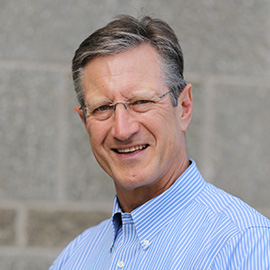4.0 Your Core Identity—An Overview

The individuals and organizations most often mentioned as having clear and admirable identities in our Foundation of Greatness (FOG) seminars include our parents, grandparents, Apple, the New England Patriots, Martin Luther King, Jr., and Abraham Lincoln. What individuals or organizations do you admire for what they stand for? Are they consistent in the message they present? Does their consistent image instill trust, even when others may challenge them? What or who are the individuals or organizations you align yourself with because they reflect your own identity and values? What if you could be that consistent foundation—a rock solid, reliable force in service of something deeply meaningful? Would people come into your life to help make your journey easier and even more meaningful?
Understand Your Core Identity to Find Your Life’s Natural Path
A primary goal on our journey through life is to understand and know our Core Identity, and then to honor it in our thoughts, behaviors, actions, and words. Each of us is born with a unique set of natural talents. It is through traveling life’s path that we gain insights into who we are when at our best, and what we are naturally meant to do. We also learn what others can do better than us. We study and learn from our path as it reveals who we are, and how it has helped shape who we have become.
Your Core Identity: Essential Components
These components build on the three Principles of Mankind discussed in previous blog posts; when honored, they help us be our natural, flourishing best:
- Purpose – That which brings energy into your life, and that serves others such they are willing to reward you for your efforts. You look forward to getting out of bed to make a difference. Purpose honors these FOG Principles:
- Positive Vision: The more clearly that we envision our role for the day, the more likely it is to happen.
- Stage III Fulfillment: Contributing to the Benefit of Others: This stage is generative, as we make something of significance possible for an individual or community we care about deeply.
- Boundaries: They are necessary to clarify which actions best serve your purpose; they eliminate those actions that hinder you.
- Vision – The meaningful picture of a better tomorrow; you have faith it will be created as a result of a long-term commitment to your Purpose. Vision honors these FOG Principles:
- Positive Vision: The more vivid and deeply meaningful the legacy we desire to leave is, the shorter the path to it.
- Stage IV Fulfillment: Legacy: This stage focuses on future benefits of your efforts today.
- Boundaries: They clarify and define your Vision so that it is achievable.
- Guiding Principles – The Beliefs and Values that guide your actions and decisions in service of your Purpose, in route to your Vision. Guiding Principles honor this FOG Principle:
- Boundaries: They help with focus as you move toward your vision, so that you are in alignment with your deeper inner self, and it feels right.
Discovering Your Natural Path
Your life journey has built or revealed who you are when at your best. Moving forward in search of realizing personal potential requires reflection on past decision-making, and the resulting ramifications on your path through life.
Ask yourself these questions:
- What went well, and why?
- What did not go well, and why?
- What characterized you when you were both passionate and successful?
Now, at this stage in your development . . . what Purpose are you prepared for, that you can address better than anyone else in the world?
What is the purpose you feel a passion to serve, or to make the most meaningful difference? It is through this study of our journey through life that we can reveal our Core Identity. This clarity permits a natural flow of life and honors who we are meant to be. This clarity also permits us to say “no” when a proposed action feels wrong.
This applies to organizations as well. As individuals who comprise an organization approach their individual potential, then, and only then, can the organization realize its potential.
This post is part of series drawn from Fritz Seyferth’s upcoming book on the Foundation of Greatness.






